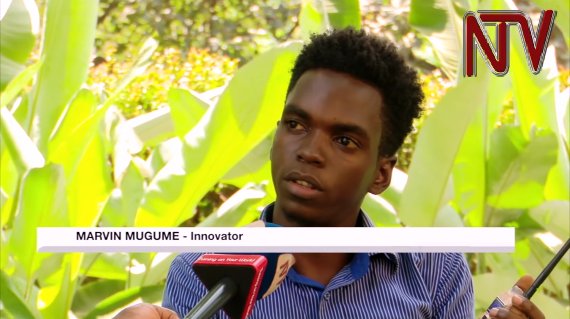A breathalyzer is a device used to detect alcohol levels of an individual. The device has recently been used by police to crack down on drink driving in a campaign that has been dubbed ‘’Kawunyemu.”
However, Marvin Mugume and Isaac Mubiru, both students at Makerere University felt that the breathalyzers currently in use are not user friendly and could potentially transmit diseases.
“We carried out research and found out that only one out of every one hundred people is able to read the current breathalyzer and know how it works,” said Marvin Mugume (The brain child behind Kaseke).
Due to the need for improvement, the two took it upon themselves to create a new breathalyzer they named the project Kaseke, a Luganda word to mean straw.
How the Kaseke works
The driver enters his driving permit number in the system which is then connected to the database and retrieves the drivers personal details. This immediately captures the problem of those using forged permit, because once an invalid permit number is put, the system will detect it.
The driver is then given a straw (kaseke) to blow in. According to the students, the straw is much cheaper and reduces the chance of disease infection since it is not reused and each driver gets one.
After the driver blows into the device, with the help of the codes and computer programme that the students have embedded in the device, it is able to reflect the alcohol levels of the driver, and show whether the driver is sober (DRIVE ON), or intoxicated (UNDER ARREST).
The device has two ports; a charger port and a data port which is connected to the computer and also connects to the internet.
Currently the device goes for One hundred and twenty thousand Ugandan shillings (Shs120,000).
Improvement:
The innovators want to improve the device further and include bio-metrics scan, whereby one does not have to manually punch in the permit number but just place his or her finger on the device and the device connects to the police and National ID database thus bringing forth the driver information.
Challenge:
Most of the micro chips that are used in the manufacturing of the device are imported and are not readily available on the local market, with the innovators having to outsource parts from Germany, China and other countries around the world.
Over the years, students of Makerere university have been known to come up with very innovative projects that are meant to simplify life and solve society problems.
Some of the innovations over the years from Makerere University include the Kiira Ev Poc Africa’s first electronic car which was launched on 24th November 2011, which the students later followed up with “Kayoola” Solar powered electric Bus that was launched on 16th February 2016.

In 2014 Brian Gitta then a student of Bsc Computer Science with his team Code 8, invented a device that is able to care out bloodless malaria test. An innovation he was in June this year recognized for at the royal academy of Engineering Africa with a cash prize of 25,000 Euro’s ($33,000).





